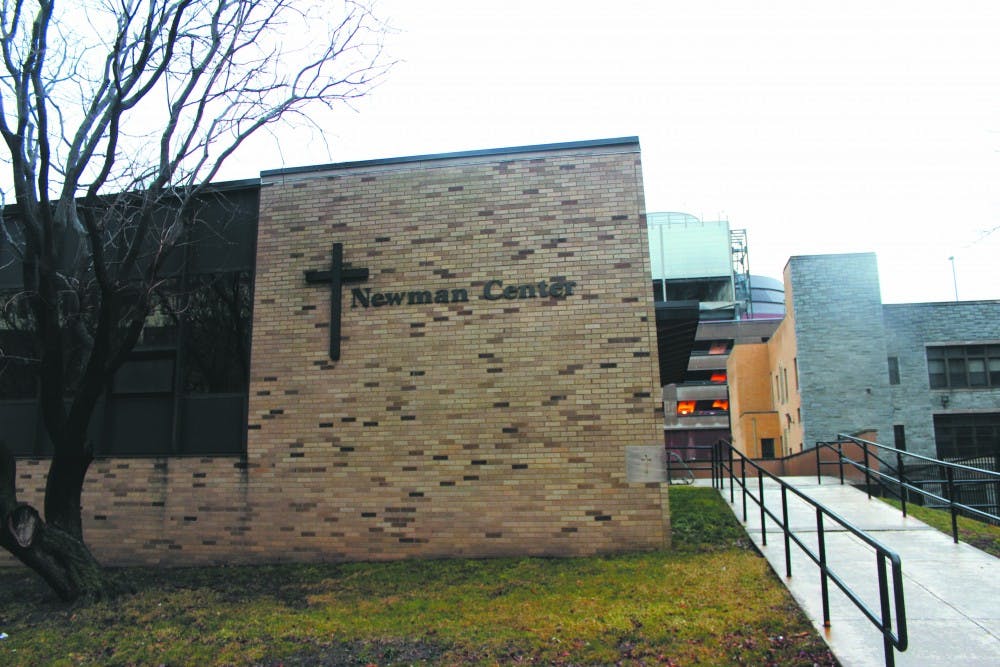
The Penn community is working to make sense of Pope Benedict XVI’s Feb. 11 announcement of his resignation — the first of its kind in almost 600 years.
Penn Newman president and College junior Kaitlyn Kutschera was shocked when she found out about the Pope’s resignation.
“[I] got a text message when I woke up asking if it was a joke,” Kutschera said. “Everyone was definitely really surprised.”
Pope Benedict’s resignation in part highlights the Vatican’s financial problems, which in turn has local implications, Penn religious studies professor Ann Matter said. Although Penn Newman Center is funded by the archdiocese, many levels below the Vatican, they are experiencing financial strain which could be linked to the Vatican’s financial problems.
This year, the Penn and Drexel Newman centers — which are funded with the same lump of money — received a 45 percent budget cut. In the past few years the centers received $359,000, but this fiscal year they only got $200,000. Since budget cuts among parishes are happening across the United States, Penn Newman’s financial difficulties could reflect financial problems at the top, Penn Newman Assistant Director Jeff Klein said.
According to Matter, the Vatican has been under financial stress due to money lost in priest abuse cases. In early January, the Bank of Italy forbade the Deutsche Bank’s Italian unit from providing credit card services in the Vatican after the Vatican failed to improve their financial administration before the deadline on Dec. 31.
“The Catholic church locally has seen some financial difficulties and maybe some of these things are reflected at the Vatican level,” Klein said.
Klein added that there was a diversity of reactions to Pope Benedict XVI’s resignation. While some Penn Catholics felt that the pope was acting in the church’s best interests, others questioned why the pope would step down when his predecessor, Pope John Paul II, continued serving while he was suffering from Parkinson’s Disease.
“In my opinion, it is just not the type of position you give up,” Engineering freshman and Penn Catholic Students Association member Monica Wojciechowski said. “The head of the Catholic Church should be in it for life.”
Most Newman Center members are most interested in who the next pope will be. A prominent choice among Penn Catholics is Cardinal Peter Turkson, a cardinal from Ghana, who would be the first non-European pope if elected.
According to Klein, a change in the papacy can have an impact on youths around the world, despite the distance between them. Pope John Paul II established World Youth Day — a gathering of young adults from around the world that culminates in a papal mass. Penn students have expressed interest in attending the World Youth Day events this summer in Rio de Janeiro.
A new pope could also have an impact on the rest of the church’s policies.
“[The] new pope could make a lot of difference if he takes a tack of going after the Catholic liberal churches and cracking down on things like birth control and abortion and women’s rights,” Matter said.
Pope Benedict was the first pope to willingly resign since 1294, Matter said. Pope Gregory XII in was forced to resign in 1415 following the Church schism, when the world had two popes. Pope Celestine V was the last pope to willingly step down after only five months holding the papacy.
The Daily Pennsylvanian is an independent, student-run newspaper. Please consider making a donation to support the coverage that shapes the University. Your generosity ensures a future of strong journalism at Penn.
DonatePlease note All comments are eligible for publication in The Daily Pennsylvanian.





